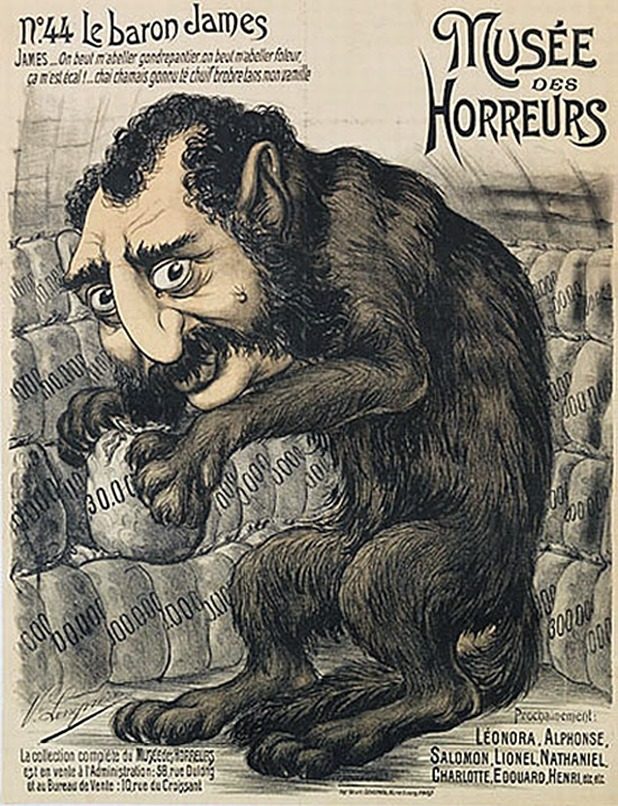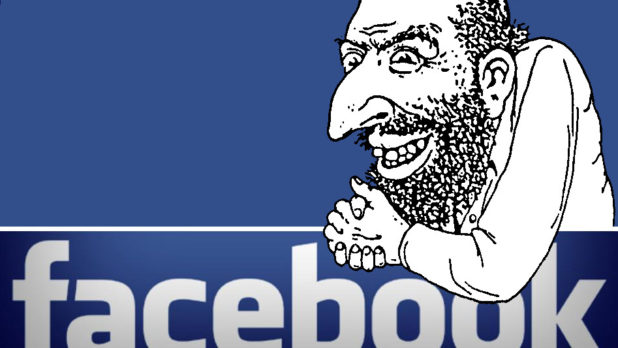Andrew Anglin
Daily Stormer
July 24, 2019
Finally, some action is being taken against the abusive and evil Jewish tech monopolies.
Antitrust is not really the angle I wanted the Department of Justice to take in their investigation, but I guess this is the most straightforward.
What I am concerned about is the fact that they are interrupting an FTC investigation.
The Justice Department is opening a broad antitrust review into whether dominant technology firms are unlawfully stifling competition, adding a new Washington threat for companies such as Facebook Inc., Google, Amazon.com Inc. and Apple Inc.
The review is geared toward examining the practices of online platforms that dominate internet search, social media and retail services, the department said, confirming the review shortly after The Wall Street Journal reported it.
The new antitrust inquiry under Attorney General William Barr could ratchet up the already considerable regulatory pressures facing the top U.S. tech firms. The review is designed to go above and beyond recent plans for scrutinizing the tech sector that were crafted by the department and the Federal Trade Commission.
…
The FTC in February created its own task force to monitor competition in the tech sector; that team’s work is ongoing.
The Justice Department will examine issues including how the most dominant tech firms have grown in size and might—and expanded their reach into additional businesses.
The Justice Department also is interested in how Big Tech has leveraged the powers that come with having very large networks of users, the department said.
There is no defined end-goal yet for the Big Tech review other than to understand whether there are antitrust problems that need addressing, but a range of options are on the table, the officials said. The inquiry could eventually lead to more focused investigations of specific company conduct, they said.
The review also presents risks for the companies beyond whether antitrust issues are identified. The department won’t ignore other company practices that may raise concerns about compliance with other laws, officials said.
“Without the discipline of meaningful market-based competition, digital platforms may act in ways that are not responsive to consumer demands,” Justice Department antitrust chief Makan Delrahim said in a statement. “The department’s antitrust review will explore these important issues.”
Representatives for Facebook, Alphabet, Amazon and Apple didn’t respond to requests to comment.
In after-hours trading Tuesday, shares for those four companies were down. Apple was down by about 0.4%, Amazon by about 1.13%, Alphabet by about 0.96%, and Facebook by about 1.65%.
The Big Tech companies have said they are highly innovative firms that create jobs and provide products and services that consumers love. They have said they have rightly won their places atop the tech pyramid and have to compete fiercely to stay there.
The Justice Department already has been preparing to probe whether Alphabet Inc.’s Google is engaging in unlawful monopolization practices. The Journal earlier reported the department’s plans for that investigation, whose existence hasn’t been confirmed by the agency.
The department’s antitrust division will conduct both reviews; it is unknown if and when the two efforts will intersect. On the broader tech review, the division will work in close coordination with Deputy Attorney General Jeffrey Rosen, the officials said.
Yeah, I’m sure Rosenstein will be honest about everything.
Just like he was honest about the Mueller hoax and every other Jewish plot.
The department appears to be hitting the ground running. It recently hosted a private presentation where officials heard from critics of Facebook, including academics, who walked through their concerns about the social-media giant and advocated for its breakup, according to people familiar with that meeting. Tech and antitrust observers believed issues related to Facebook’s dominance were to be handled by the FTC.
Both the FTC and the Justice Department have made clear that they view tech-sector competition issues as a priority. Under agreements brokered in recent months between Mr. Delrahim and FTC Chairman Joseph Simons, the Justice Department obtained clearance to proceed with a probe of whether Google has engaged in illegal monopolization tactics, as well as jurisdiction over Apple for similar issues. The FTC, meanwhile, won for itself the right to explore monopolization questions involving Facebook and Amazon. (The commission already has undertaken a lengthy consumer-protection investigation of Facebook’s privacy practices, and the company has agreed to a $5 billion fine.)
Yeah, and in all likelihood, this investigation will just result in more meaningless “symbolic” fines that only symbolize the fact that these companies are above the law.
Justice Department officials said those agreements weren’t meant to be open-ended or all-encompassing. But in any case the department isn’t trying to pre-empt the FTC’s work, they said, and suggested the two agencies might explore different tech practices by the same company, as well as different legal theories for possible cases.
The two agencies have been in regular contact at both the leadership and staff levels to coordinate their efforts, according to a person familiar with the discussions.
It actually looks like the Justice Department is indeed coming in to interfere with what the FTC is doing. The FTC has the ability and the knowledge to deal with the corruption of the tech industry, which involves both squelching their own competition and working with the Jewish media to squash the competition of the media and protect Jewish liars in the media.
Their organized plot to silence the freedom of speech of anyone who disagrees with the Jewish agenda is also illegal, being a violation of the First Amendment and of their own CDA protections.
All of this stuff is stuff that the FTC is prepared to deal with, and bringing in this disgraced Jew Rosenstein – who is somehow still working at the DOJ, even after having been exposed as the leader of a Jewish terrorist operation to overthrow the government – is extremely concerning.
While the top tech firms were once the darlings of the public, attitudes have shifted as some consumers, and politicians on both the left and the right, have grown uncomfortable with how much power and influence they wield in the economy and society.
Some Democratic presidential candidates have called for the breakup of companies like Google and Facebook, while lawmakers of both parties have sounded alarm bells, though at times for different reasons. Some Republicans have voiced concerns about whether tech companies disfavor conservative voices, claims that industry leaders have denied.
President Trump has escalated his criticisms of Big Tech recently, openly suggesting the U.S. ought to sue Google and Facebook, comments that could hang over the Justice Department’s new efforts.Aside from Justice Department and FTC scrutiny, a House antitrust subcommittee also is taking a broad look at potential anticompetitive conduct in the tech sector. Executives from Facebook, Google, Apple and Amazon all testified before the panel last week.
So: cautious optimism, I suppose.
Maybe they’ll do something to protect freedom of speech, but likely they will not.
Given that these companies have already established such a severe pattern of banning, any meaningful change would have to be radical. You would have to just tell them that they have to respect the First Amendment, and no one can be banned for any reason.
And I don’t think anyone has the nerve to make those kinds of demands.
I think they are all natural monopolies, so the antitrust stuff seems kind of dumb and pointless. Natural monopolies should be regulated, not broken up. Breaking them up would simply punish the consumer.
That said, I support doing anything to punish them, including breaking them up. At least that would cause them some problems, which would make it more difficult for them to maintain this Orwellian grid of complete and total censorship. Still, you would ultimately just be censored by multiple platforms, rather than censored by monopolies. So it would be the same basic situation.
 Daily Stormer The Most Censored Publication in History
Daily Stormer The Most Censored Publication in History





